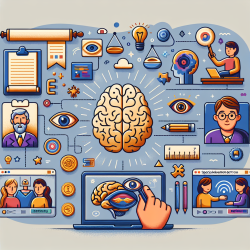Introduction
Adolescence is a pivotal period for psychological and social development. Unfortunately, mental health issues during this time can have long-lasting effects. As professionals dedicated to improving child outcomes, it's crucial to understand the efficacy of psychological treatments in addressing adolescent psychopathology. The narrative review titled The efficacy of psychological treatments on adolescent psychopathology: a narrative review provides valuable insights into this area.
Key Findings
The review highlights that psychological treatments, particularly Cognitive Behavior Therapy (CBT) and Family-Based Therapy (FBT), are effective for various adolescent mental health issues. These therapies have shown promising results in treating conditions such as anxiety, depression, eating disorders, ADHD, and more.
- Cognitive Behavior Therapy (CBT): This therapy is effective in treating anxiety, depression, and other psychological issues by helping adolescents change harmful thinking and behavior patterns.
- Family-Based Therapy (FBT): FBT is particularly effective for eating disorders and involves the family in the treatment process, which can lead to better outcomes.
Implications for Practitioners
For practitioners, these findings underscore the importance of integrating evidence-based therapies into practice. Here are some actionable steps:
- Incorporate CBT techniques to help adolescents identify and alter negative thought patterns.
- Engage families in the therapeutic process, especially for disorders like anorexia, where family dynamics play a critical role.
- Consider the use of technology and online platforms to deliver therapy, making it more accessible and reducing stigma.
Encouragement for Further Research
While the review provides a comprehensive overview, it also highlights the need for further research. Future studies should focus on:
- Exploring the efficacy of psychological treatments for less-studied conditions like self-harm and PTSD.
- Developing and testing interventions tailored to diverse populations and settings.
- Investigating the long-term outcomes of these therapies to ensure sustained benefits.
Conclusion
Practitioners have a critical role in implementing effective psychological treatments for adolescents. By staying informed and applying data-driven strategies, we can significantly improve mental health outcomes for young individuals. For those interested in delving deeper into the research, I highly recommend reading the original paper: The efficacy of psychological treatments on adolescent psychopathology: a narrative review.










